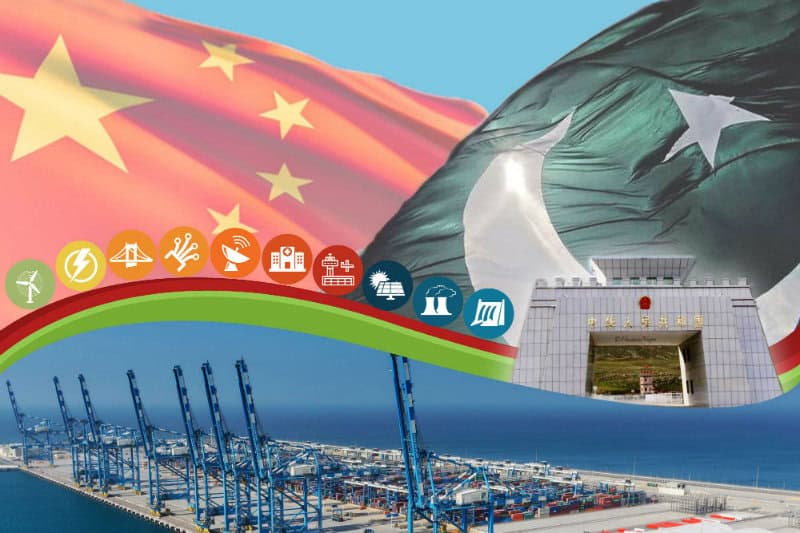ISLAMABAD – Pakistan on Monday sought clarification from Chinese Counsel General over an Indian report about China’s willingness to change the name of the China-Pakistan Economic Corridor (CPEC) to assuage India’s concerns about the project.
The offer was reportedly made by the Chinese ambassador to India Luo Zhaohui in a speech to the United Service Institution (USI) in New Delhi on Friday, according to Zee News.

Stating that the CPEC is for promoting economic cooperation on connectivity, Luo claimed that it has “no connections to or impact on sovereignty issues”.
This is not a new argument from China. A similar point was made by Chinese foreign minister Wang Yi last month at a media briefing about the forthcoming OBOR summit. But in his speech, the Chinese ambassador floated a new offer as a possible solution to mitigate Indian concerns. China, he said “even can think about renaming the CPEC.”
“It (CPEC) has no connections to or impact on sovereignty issues. Even we can think about renaming the CPEC. China and India have had successful experience of delinking sovereignty disputes with bilateral relations before. China is sincere in its intention to cooperate with India on the One Belt One Road (OBOR) initiative, as it is good for both of us,” he said.
A private Pakistani TV channel, citing sources in Ministry of Planning and Development, reported that Pakistani officials have written a letter to Chinese authorities in Islamabad over the issue. “We are awaiting Chinese clarification on this situation,” the officials were quoted by Geo News as saying on Monday.
At the closed door event on May 7, the Chinese envoy argued that his country had no “intention to get involved in the sovereignty and territorial disputes between India and Pakistan”.
India’s main objection to the CPEC has been that it runs through Gilgit-Baltistan, a part of Jammu and Kashmir that runs under Pakistan control. Earlier this year, Prime Minister Narendra Modi criticised the belt-road initiative, saying connectivity could not be allowed to undermine the country’s sovereignty.

Last week, India’s finance minister Arun Jaitley reiterated the same concerns. “I have no hesitation in saying we have some serious reservations about it (OBOR), because of sovereignty issues,” he told a media round-table in Tokyo.
However, Luo argued that CPEC is for promoting economic cooperation and connectivity and that Beijing has no plans to get involved in the sovereignty and territorial disputes between India and Pakistan.
The ambassador even denied that China has been aiding Pakistan. He said that China’s initiatives focus more on reaping its own benefits rather than supporting the stance of any other nation.
“We always put China first and we deal with problems based on their own merits,” he said.
On Sunday, Pakistan and China agreed to jointly oversee the CPEC and ensure transparency in the project as an agreement in this regard was signed between the National Accountability Bureau (NAB) and Beijing.
A combined initiative focusing on enhancing economic cooperation between China and Pakistan, the CPEC is being hailed to create 85,000 jobs for Pakistani youth. It is being facilitated to modernise infrastructure and transport networks in Pakistan through the creation of special economic zones and energy projects.

The initial proposal was made in April 2015 during Chinese President Xi Jinping`s official state visit to Pakistan.
On April 20, 2015, Pakistan and China signed an agreement to commence work on the USD 46 billion agreement, with approximately USD 28 billion worth of fast-tracked projects to be developed by the end of 2018.
In any event, the re-naming of the CPEC – or even portions of it – could raise eyebrows in Pakistan, where Prime Minister Nawaz Sharif has promoted the $51 billion project as the key economic “game-changer” from his term in office.

The Pakistani military establishment, which is a key stakeholder in the corridor, also sees enormous strategic value from the corridor and may baulk at any symbolic Chinese gesture towards Indian concerns.













